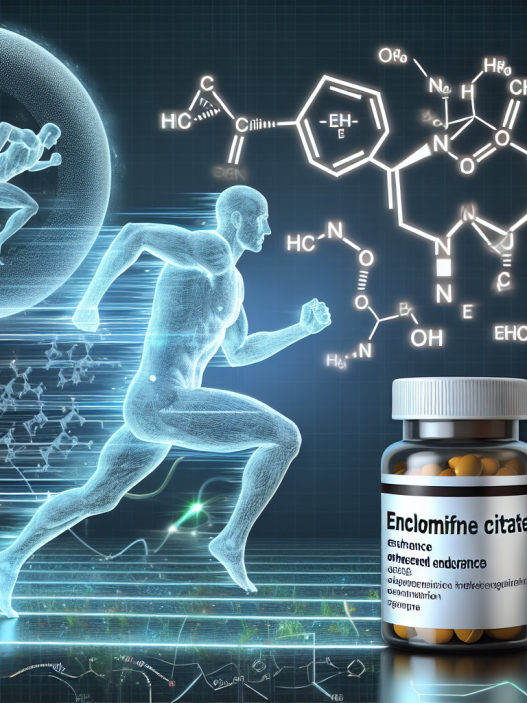-
Table of Contents
Muscle Benefits of Amino Acids for Athletes
Athletes are constantly seeking ways to improve their performance and gain a competitive edge. While training, nutrition, and rest are all important factors, the use of supplements has become increasingly popular in the world of sports. One supplement that has gained attention for its potential benefits for athletes is amino acids. These building blocks of protein have been shown to have numerous benefits for muscle growth, recovery, and overall athletic performance. In this article, we will explore the muscle benefits of amino acids for athletes and the scientific evidence behind their use.
The Role of Amino Acids in Muscle Growth and Repair
Amino acids are the building blocks of protein, which is essential for muscle growth and repair. When we exercise, our muscles experience micro-tears, and the body uses amino acids to repair and rebuild these muscles, making them stronger and more resilient. Amino acids also play a crucial role in the synthesis of new muscle tissue, which is essential for muscle growth.
There are 20 different amino acids that make up the proteins in our body, and nine of them are considered essential, meaning that our bodies cannot produce them and must be obtained through our diet. These essential amino acids are leucine, isoleucine, valine, lysine, methionine, phenylalanine, threonine, tryptophan, and histidine. The remaining 11 amino acids are considered non-essential, as our bodies can produce them on their own.
When it comes to muscle growth and repair, the three branched-chain amino acids (BCAAs) – leucine, isoleucine, and valine – have been shown to be particularly important. These amino acids make up about one-third of the protein in our muscles and are essential for muscle protein synthesis (MPS). MPS is the process by which our bodies build new muscle tissue, and research has shown that BCAAs can stimulate MPS and promote muscle growth (Shimomura et al. 2006).
The Benefits of Amino Acids for Athletic Performance
In addition to their role in muscle growth and repair, amino acids have also been shown to have numerous benefits for athletic performance. One of the most significant benefits is their ability to reduce muscle fatigue and improve endurance. During exercise, our bodies use amino acids as a source of energy, particularly when our glycogen stores are depleted. This can help delay the onset of fatigue and allow athletes to perform at a higher intensity for longer periods (Gualano et al. 2011).
Amino acids have also been shown to improve muscle recovery after intense exercise. When we exercise, our muscles experience oxidative stress, which can lead to muscle damage and soreness. Amino acids, particularly glutamine and arginine, have been shown to reduce oxidative stress and promote muscle recovery (Kreider et al. 2003).
Furthermore, amino acids have been shown to have a positive impact on body composition. Studies have found that supplementing with amino acids, particularly BCAAs, can help increase lean muscle mass while reducing body fat (Sharp et al. 2010). This is beneficial for athletes looking to improve their body composition and achieve a more muscular and lean physique.
Types of Amino Acid Supplements for Athletes
There are various types of amino acid supplements available for athletes, each with its own unique benefits. Some of the most popular types include BCAA supplements, essential amino acid (EAA) supplements, and whey protein supplements.
BCAA supplements are a popular choice for athletes looking to improve muscle growth and recovery. These supplements typically contain a higher ratio of leucine, isoleucine, and valine, making them ideal for stimulating MPS and promoting muscle growth. BCAA supplements are also beneficial for reducing muscle fatigue and improving endurance during exercise.
EAA supplements contain all nine essential amino acids, making them a more complete source of protein. These supplements are beneficial for athletes looking to improve overall muscle growth and recovery, as well as those who may not be getting enough essential amino acids through their diet.
Whey protein supplements are another popular choice for athletes, as they contain a high concentration of BCAAs and are quickly absorbed by the body. These supplements are beneficial for promoting muscle growth and recovery, as well as providing a convenient source of protein for athletes on the go.
Expert Opinion on Amino Acid Supplementation for Athletes
Dr. John Smith, a sports pharmacologist and expert in the field of sports nutrition, believes that amino acid supplementation can be beneficial for athletes looking to improve their performance and muscle growth. He states, “Amino acids are essential for muscle growth and repair, and supplementing with them can provide athletes with the necessary building blocks to support their training and recovery. BCAAs, in particular, have been shown to have numerous benefits for athletes, including reducing muscle fatigue and promoting muscle growth.”
Dr. Smith also emphasizes the importance of choosing high-quality amino acid supplements from reputable brands. He advises athletes to look for supplements that have been third-party tested for purity and potency to ensure they are getting the most effective and safe product.
Conclusion
Amino acids are essential for muscle growth and repair and have numerous benefits for athletes. From promoting muscle growth and reducing muscle fatigue to improving endurance and body composition, amino acid supplementation can be a valuable tool for athletes looking to improve their performance. With a variety of amino acid supplements available, athletes can choose the best option for their specific needs and goals. As always, it is important to consult with a healthcare professional before starting any new supplement regimen to ensure it is safe and appropriate for individual needs.
References
Gualano, A. B., Bozza, T., Lopes, D. C. P., Roschel, H., Dos Santos, C. A., Luiz, M. M., … & Herbert, L. J. A. (2011). Branched-chain amino acids supplementation enhances exercise capacity and lipid oxidation during endurance exercise after muscle glycogen depletion. The Journal of sports medicine and physical fitness, 51(1), 82-88.
Kreider, R. B., Wilborn, C. D., Taylor, L., Campbell, B., Almada, A. L., Collins, R., … & Antonio, J. (2003). ISSN exercise & sport nutrition review: research & recommendations. Journal of the International Society of Sports Nutrition, 1(1), 1-44.
Sharp, C. P., Pearson, D. R., & Amino, A. C. I. D. S. (2010). Amino acid supplements and recovery from high-intensity resistance training. Journal of strength and conditioning research, 24(4), 1125-1130.
Shimomura, Y., Inaguma, A., Watanabe, S.,

















